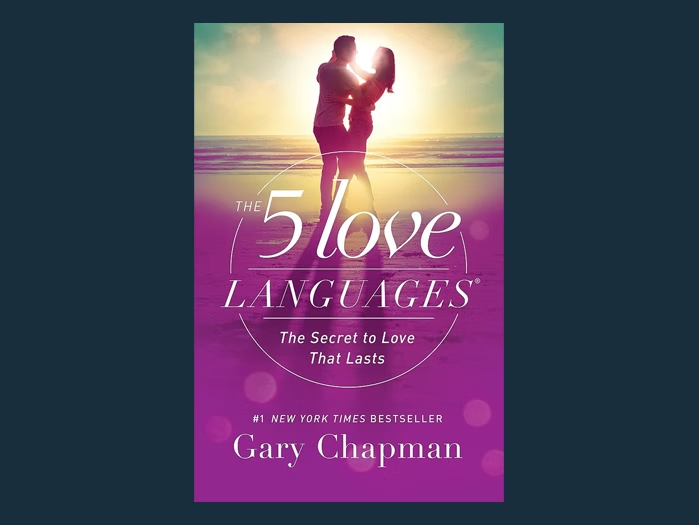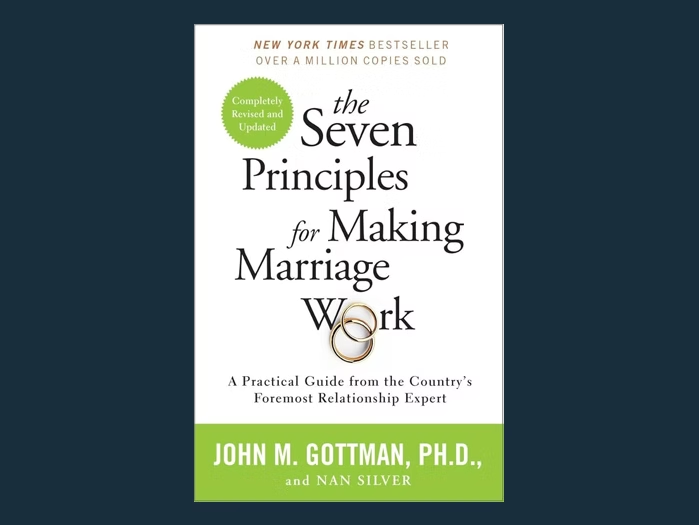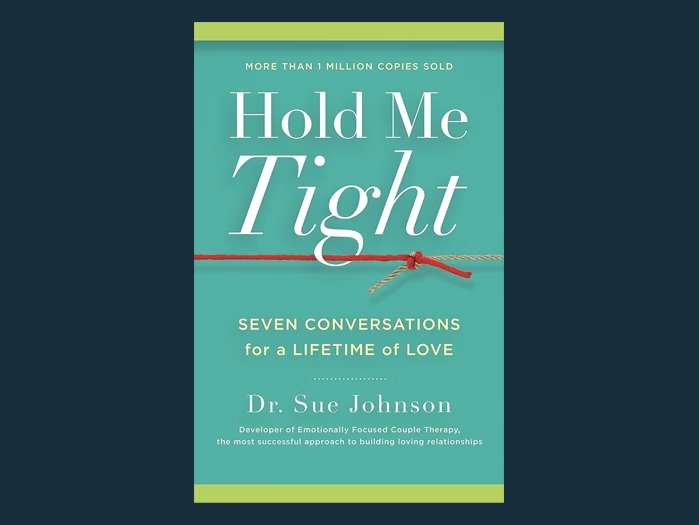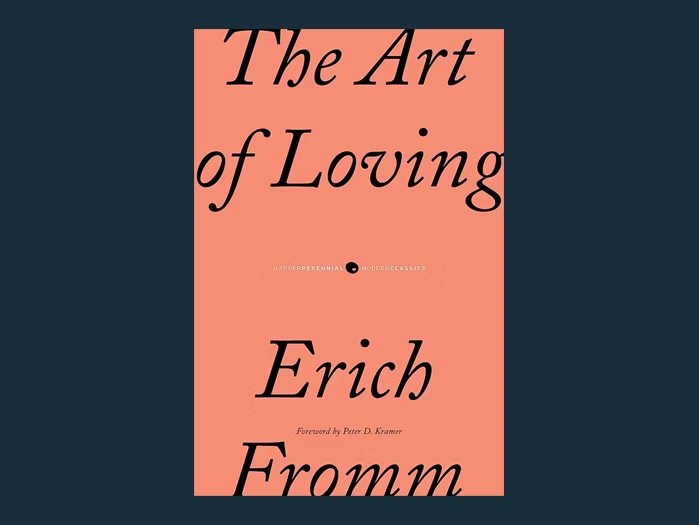📚 Introduction
As a couple, we are always on the lookout for ways to improve our relationship and deepen our connection. One of the most transformative practices we've discovered is reading relationship books together. There's something powerful about exploring new concepts as a team, discussing insights, and implementing strategies together.
In this post, we're sharing five books that have genuinely changed our relationship for the better. These aren't just theoretical texts—they're practical guides that have given us concrete tools to communicate more effectively, understand each other more deeply, and build a stronger foundation for our partnership.
Whether you're navigating challenges or simply want to enrich an already strong relationship, these books offer valuable wisdom for couples at any stage. Let's dive in!
💕 Our Top 5 Relationship Books
1. The Five Love Languages: The Secret to Love That Lasts by Gary Chapman

This book has been nothing short of a game-changer for us. Dr. Chapman's concept of the five love languages provides a simple yet profound framework for understanding how we each prefer to give and receive love. The five languages—words of affirmation, quality time, receiving gifts, acts of service, and physical touch—helped us realize why certain gestures resonated deeply with one partner while barely registering with the other.
Key Takeaways:
- Understanding that people express and experience love differently can transform how you communicate care
- Learning your partner's primary love language helps you make them feel truly loved and appreciated
- Recognizing your own love language helps you communicate your needs more effectively
- Small adjustments in how you express love can yield significant improvements in relationship satisfaction
Our Experience: Before reading this book, I (MD) would frequently buy small gifts for my partner, thinking this was the best way to show love. Meanwhile, my partner (Techie) was constantly offering to help with tasks and projects. We were both showing love, but not in ways that resonated with each other. Learning that my primary love language is quality time and my partner's is acts of service transformed how we interact. Now, when Techie takes care of a task without being asked, I recognize it as a profound expression of love, not just a completed chore.
2. Men Are from Mars, Women Are from Venus by John Gray

While some of the gender generalizations in this classic book may feel dated, the core insights about different communication styles remain incredibly valuable. Gray explores how men and women often approach problems, communication, and emotional processing differently, which can lead to misunderstandings and frustration when these differences aren't recognized and respected.
Key Takeaways:
- Men often want to solve problems immediately, while women may need to process emotions first
- Understanding when a partner needs space versus when they need connection can prevent many conflicts
- Different approaches to communication aren't wrong—just different
- Learning to "translate" between different communication styles strengthens relationships
Our Experience: This book helped us understand why we sometimes felt like we were speaking different languages during disagreements. I (Techie) would immediately jump to solutions when my partner was upset, not realizing that sometimes they just needed empathy and a listening ear. Meanwhile, I (MD) would get frustrated when my partner withdrew during conflicts, not understanding that this was a way of processing emotions. Recognizing these patterns has helped us communicate more effectively during challenging moments.
3. The Seven Principles for Making Marriage Work by John Gottman

Dr. John Gottman is renowned for his research-based approach to relationships, and this book distills decades of studying thousands of couples into practical principles anyone can apply. What makes this book particularly valuable is that it's grounded in extensive scientific research rather than just theory or anecdotes.
Key Takeaways:
- Building detailed "love maps" of your partner's inner world creates deeper connection
- Nurturing fondness and admiration acts as a buffer during difficult times
- Turning toward each other in small daily moments builds relationship resilience
- Learning to manage conflict rather than trying to eliminate it is key to long-term success
- Creating shared meaning and supporting each other's dreams strengthens bonds
Our Experience: The "love maps" exercise was particularly transformative for us. We realized there were aspects of each other's hopes, dreams, and worries that we hadn't fully explored. Taking time to ask deeper questions and really listen to the answers helped us feel more deeply known and understood. We also appreciated Gottman's practical approach to conflict resolution, which helped us move from gridlock to productive dialogue on several recurring issues.
4. Hold Me Tight: Seven Conversations for a Lifetime of Love by Sue Johnson

Dr. Sue Johnson's approach to Emotionally Focused Therapy (EFT) has revolutionized how therapists work with couples, and this book brings her insights to the general public. The central premise is that adult romantic relationships are attachment bonds similar to those between parents and children—we all need secure emotional connections to thrive.
Key Takeaways:
- Most relationship conflicts are really protests about emotional disconnection
- Identifying negative interaction patterns is the first step to breaking them
- Expressing vulnerable emotions rather than defensive reactions builds trust
- Creating and revisiting moments of deep connection helps heal relationship wounds
- Secure attachment allows both partners to flourish individually and as a couple
Our Experience: This book helped us recognize our "dance"—the negative interaction pattern we would fall into during conflicts. I (MD) would pursue and criticize when feeling disconnected, while my partner (Techie) would withdraw and shut down. Understanding that these behaviors were driven by attachment needs rather than bad intentions helped us approach conflicts with more compassion. Learning to express our deeper, more vulnerable feelings ("I feel alone" instead of "You never listen!") transformed our ability to reconnect during difficult moments.
5. The Art of Loving by Erich Fromm

This philosophical classic takes a different approach from the other books on our list, exploring love as an art that requires knowledge, effort, and practice. Written in 1956, Fromm's insights remain remarkably relevant today, challenging the notion that love is merely a pleasant sensation rather than an active skill to be developed.
Key Takeaways:
- Love is an active power rather than a passive experience—it's something you do, not just feel
- True love involves care, responsibility, respect, and knowledge of the other person
- Self-love and the ability to love others are interconnected
- Modern society often creates obstacles to developing the capacity for deep love
- Practicing discipline, concentration, and patience develops the capacity to love well
Our Experience: While the other books on our list offer more practical techniques, this one transformed our philosophical understanding of love. It helped us see that love isn't just about finding the right person, but about developing ourselves into people capable of loving deeply and wisely. The book prompted meaningful discussions about our values and how we want to grow individually and as a couple. It's a book we return to periodically for its timeless wisdom.
📖 How to Read These Books as a Couple
Reading relationship books together can be a bonding experience in itself. Here's how we approach it:
1. Set a realistic pace: We typically read a chapter per week, giving us time to digest and discuss the material without feeling rushed.
2. Take notes individually: Before discussing, we each note our reactions, insights, and questions. This ensures both perspectives get equal consideration.
3. Schedule dedicated discussion time: We set aside 30-60 minutes in a comfortable, distraction-free environment to share our thoughts.
4. Focus on application: For each chapter, we identify at least one concrete action or practice to implement in our relationship.
5. Be patient with the process: Some concepts resonate immediately, while others take time to understand and integrate. Growth isn't linear!
❤️ Conclusion
Reading these books together has been a wonderful way for us to grow closer as a couple. They've helped us understand each other better, communicate more effectively, and deepen our emotional bond. The insights and tools we've gained continue to serve us daily as we navigate the joys and challenges of building a life together.
Remember that every relationship is unique, and what works for one couple might not work for another. Take what resonates from these books and leave the rest. The most important thing is the shared commitment to growth and understanding.
We'd love to hear about your experiences with these books or any others that have positively impacted your relationship. What relationship books would you recommend to other couples? Share your thoughts in the comments below!
Looking for more relationship resources? Check out our posts on communication habits that transformed our relationship and how to use Notion for relationship management.


